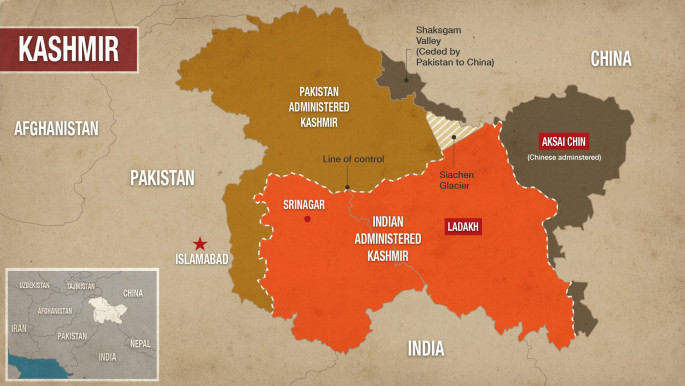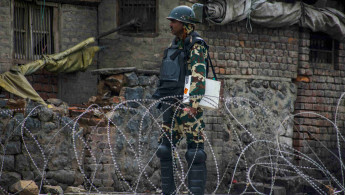India reimposes curbs on movement in Kashmir after clashes kill one, injure dozens
Following an easing of curbs on movement on Saturday morning, Kashmir was hit by a series of protests against New Delhi's August 5 revocation of the disputed region's autonomy.
The state government claims it has not imposed a curfew over the past two weeks, and telephone landlines were restored in parts of Srinagar on Saturday following 12 days of a total communication blackout.
Officials said most telephone exchanges throughout the region would be operational by Sunday evening, but the internet and mobile phones remain out of service.
Eyewitnesses, however, told Reuters restrictions returned on Sunday, with people being turned back at multiple roadblocks set up across Srinagar and security forces telling some residents there was a curfew.
Javed Ahmad from the wealthy Rajbagh area of Srinagar told Reuters he was prevented from entering the old city. "I had to visit my parents there. Troops had blocked the road with concertina wire. They asked me to go back as there was curfew in the area," he said.
Clashes between residents and police in Srinagar resulted in at least two dozen people admitted to hospitals with pellet injuries on Saturday night, two senior government officials told Reuters.
 |
|
| [Click to enlarge] |
One official said that protesters had pelted security forces with stones in around two dozen places in Srinagar, noting that the intensity of the stone-throwing protests had increased over the past few days.
Eyewitnesses said heavy clashes took place in the Rainawari, Nowhetta and Gojwara areas of Srinagar's old city, with Indian troops firing tear gas, chilli grenades and pellets to disperse protesters.
Chilli grenades contain extremely spicy chilli pepper and cause major irritation in the skin and eyes, as well as a pungent smell, when released.
Protests also took place in other parts of the city including Soura, which has become a hotbed for protests since the revocation of Kashmir's special status.
Residents have reported that previous stone-throwing protests have been followed by Indian security forces raiding homes and damaging property. They have also reported being verbally abused or physically assaulted by security forces.
Saturday's clashes saw at least 17 people go to Srinagar's main hospital with pellet injuries, with five admitted with grievous injuries.
Hospital officials told Reuters that 65-year-old Mohammad Ayub was admitted to hospital on Saturday afternoon after he had major difficulties breathing when tear gas and chilli grenades were fired in the old city.
He died in the hospital on Saturday night, they said.
More than 500 political and community leaders remain in detention, with some being transported to prisons outside Kashmir.
Since 1989, India has been fighting an insurgency in the part of Kashmir it controls. More than 50,000 people have been killed as a result. Analysts say the decision to revoke autonomy will cause further alienation and more conflict in the region.
The revocation of autonomy will allow non-residents to buy property in Kashmir and end the reservation of state government jobs for local residents, a move that many fear may be a precursor to demographic change.





 Follow the Middle East's top stories in English at The New Arab on Google News
Follow the Middle East's top stories in English at The New Arab on Google News
![The UAE is widely suspected of arming the RSF militia [Getty]](/sites/default/files/styles/image_330x185/public/2024-11/GettyImages-472529908.jpg?h=69f2b9d0&itok=Yauw3YTG)
![Netanyahu furiously denounced the ICC [Getty]](/sites/default/files/styles/image_330x185/public/2024-11/GettyImages-2169352575.jpg?h=199d8c1f&itok=-vRiruf5)
![Both Hamas and the Palestinian Authority welcomed the ICC arrest warrants [Getty]](/sites/default/files/styles/image_330x185/public/2024-11/GettyImages-2178351173.jpg?h=199d8c1f&itok=TV858iVg)